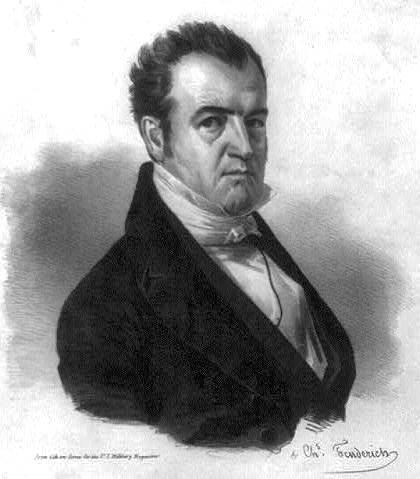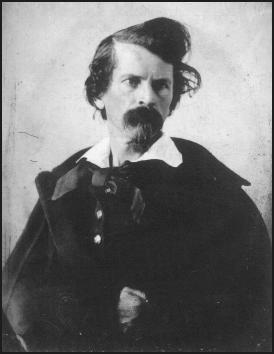|
Mississippi In The Civil War
Mississippi was the second southern state to declare its secession from the United States, doing so on January 9, 1861. It joined with six other southern states to form the Confederacy on February 4, 1861. Mississippi's location along the lengthy Mississippi River made it strategically important to both the Union and the Confederacy; dozens of battles were fought in the state as armies repeatedly clashed near key towns and transportation nodes. Mississippian troops fought in every major theater of the American Civil War, although most were concentrated in the Western Theater. Confederate president Jefferson Davis was a Mississippi politician and operated a large cotton plantation there. Prominent Mississippian generals during the war included William Barksdale, Carnot Posey, Wirt Adams, Earl Van Dorn, Robert Lowry, and Benjamin G. Humphreys. Secession and Mississippian politics For years prior to the American Civil War, slave-holding Mississippi had voted heavily for the ... [...More Info...] [...Related Items...] OR: [Wikipedia] [Google] [Baidu] |
Confederate States Of America
The Confederate States of America (CSA), commonly referred to as the Confederate States or the Confederacy was an unrecognized breakaway republic in the Southern United States that existed from February 8, 1861, to May 9, 1865. The Confederacy comprised U.S. states that declared secession and warred against the United States during the American Civil War: South Carolina, Mississippi, Florida, Alabama, Georgia, Louisiana, Texas, Virginia, Arkansas, Tennessee, and North Carolina. Kentucky and Missouri also declared secession and had full representation in the Confederate Congress, though their territory was largely controlled by Union forces. The Confederacy was formed on February 8, 1861, by seven slave states: South Carolina, Mississippi, Florida, Alabama, Georgia, Louisiana, and Texas. All seven were in the Deep South region of the United States, whose economy was heavily dependent upon agriculture—particularly cotton—and a plantation system that relied upon enslaved ... [...More Info...] [...Related Items...] OR: [Wikipedia] [Google] [Baidu] |
Constitutional Union Party (United States)
The Constitutional Union Party was a United States third party active during the 1860 elections. It consisted of conservative former Whigs, largely from the Southern United States, who wanted to avoid secession over the slavery issue and refused to join either the Republican Party or the Democratic Party. The Constitutional Union Party campaigned on a simple platform "to recognize no political principle other than the Constitution of the country, the Union of the states, and the Enforcement of the Laws". The Whig Party had collapsed in the 1850s due to a series of sectional crises over slavery. Though some former Whigs joined the Democratic Party or the new, anti-slavery Republican Party, others joined the nativist American Party. The American Party entered a period of rapid decline following the 1856 elections, and in the lead-up to the 1860 elections John J. Crittenden and other former Whigs founded the Constitutional Union Party. The 1860 Constitutional Union Convention ... [...More Info...] [...Related Items...] OR: [Wikipedia] [Google] [Baidu] |
John Bell (Tennessee Politician)
John Bell (February 18, 1796September 10, 1869) was an American politician, attorney, and planter who was a candidate for President of the United States in the election of 1860. One of Tennessee's most prominent antebellum politicians,Jonathan Atkins,John Bell" ''Tennessee Encyclopedia of History and Culture'', 2009. Retrieved: October 10, 2012. Bell served in the House of Representatives from 1827 to 1841, and in the Senate from 1847 to 1859. He was Speaker of the House for the 23rd Congress (1834–1835), and briefly served as Secretary of War during the administration of William Henry Harrison (1841). In 1860, he ran for president as the candidate of the Constitutional Union Party, a third party which took a neutral stance on the issue of slavery. and won the electoral votes of three states. Initially an ally of Andrew Jackson, Bell turned against Jackson in the mid-1830s and aligned himself with the National Republican Party and then the Whig Party, a shift that ea ... [...More Info...] [...Related Items...] OR: [Wikipedia] [Google] [Baidu] |
John C
John is a common English name and surname: * John (given name) * John (surname) John may also refer to: New Testament Works * Gospel of John, a title often shortened to John * First Epistle of John, often shortened to 1 John * Second Epistle of John, often shortened to 2 John * Third Epistle of John, often shortened to 3 John People * John the Baptist (died c. AD 30), regarded as a prophet and the forerunner of Jesus Christ * John the Apostle (lived c. AD 30), one of the twelve apostles of Jesus * John the Evangelist, assigned author of the Fourth Gospel, once identified with the Apostle * John of Patmos, also known as John the Divine or John the Revelator, the author of the Book of Revelation, once identified with the Apostle * John the Presbyter, a figure either identified with or distinguished from the Apostle, the Evangelist and John of Patmos Other people with the given name Religious figures * John, father of Andrew the Apostle and Saint Peter * Pope Jo ... [...More Info...] [...Related Items...] OR: [Wikipedia] [Google] [Baidu] |
Whig Party (United States)
The Whig Party was a political party in the United States during the middle of the 19th century. Alongside the slightly larger Democratic Party, it was one of the two major parties in the United States between the late 1830s and the early 1850s as part of the Second Party System. Four presidents were affiliated with the Whig Party for at least part of their terms. Other prominent members of the Whig Party include Henry Clay, Daniel Webster, Rufus Choate, William Seward, John J. Crittenden, and John Quincy Adams. The Whig base of support was centered among entrepreneurs, professionals, planters, social reformers, devout Protestants, and the emerging urban middle class. It had much less backing from poor farmers and unskilled workers. The party was critical of Manifest Destiny, territorial expansion into Texas and the Southwest, and the Mexican-American War. It disliked strong presidential power as exhibited by Jackson and Polk, and preferred Congressional dominance in lawma ... [...More Info...] [...Related Items...] OR: [Wikipedia] [Google] [Baidu] |
Democratic Party (United States)
The Democratic Party is one of the two major contemporary political parties in the United States. Founded in 1828, it was predominantly built by Martin Van Buren, who assembled a wide cadre of politicians in every state behind war hero Andrew Jackson, making it the world's oldest active political party.M. Philip Lucas, "Martin Van Buren as Party Leader and at Andrew Jackson's Right Hand." in ''A Companion to the Antebellum Presidents 1837–1861'' (2014): 107–129."The Democratic Party, founded in 1828, is the world's oldest political party" states Its main political rival has been the Republican Party since the 1850s. The party is a big tent, and though it is often described as liberal, it is less ideologically uniform than the Republican Party (with major individuals within it frequently holding widely different political views) due to the broader list of unique voting blocs that compose it. The historical predecessor of the Democratic Party is considered to be th ... [...More Info...] [...Related Items...] OR: [Wikipedia] [Google] [Baidu] |
Benjamin G
Benjamin ( he, ''Bīnyāmīn''; "Son of (the) right") blue letter bible: https://www.blueletterbible.org/lexicon/h3225/kjv/wlc/0-1/ H3225 - yāmîn - Strong's Hebrew Lexicon (kjv) was the last of the two sons of Jacob and Rachel (Jacob's thirteenth child and twelfth and youngest son) in Jewish, Christian and Islamic tradition. He was also the progenitor of the Israelite Tribe of Benjamin. Unlike Rachel's first son, Joseph, Benjamin was born in Canaan according to biblical narrative. In the Samaritan Pentateuch, Benjamin's name appears as "Binyamēm" (Samaritan Hebrew: , "son of days"). In the Quran, Benjamin is referred to as a righteous young child, who remained with Jacob when the older brothers plotted against Joseph. Later rabbinic traditions name him as one of four ancient Israelites who died without sin, the other three being Chileab, Jesse and Amram. Name The name is first mentioned in letters from King Sîn-kāšid of Uruk (1801–1771 BC), who called himself “King ... [...More Info...] [...Related Items...] OR: [Wikipedia] [Google] [Baidu] |
Robert Lowry (governor)
Robert Lowry (March 10, 1829January 19, 1910) was an American politician and lawyer who served as the 32nd governor of Mississippi from 1882 to 1890. Before entering politics, he was a senior officer of the Confederate States Army who commanded infantry in the Western Theater of the American Civil War. Early life and military service Robert Lowry was born in Chesterfield District, South Carolina on March 10, 1829, and was raised in Mississippi. During the American Civil War he enlisted as a private in the Confederate States Army. He quickly received a commission in the 6th Mississippi Infantry. He commanded the regiment at the Battle of Shiloh where it which suffered very heavy casualties and he was wounded himself. In early 1864 he led the troops that were sent to put down the local uprising of citizens near Jones County, Mississippi. Later Lowry commanded a brigade of Mississippi regiments in the Third Corps of the Army of Tennessee; an in February 1865 he was finally pro ... [...More Info...] [...Related Items...] OR: [Wikipedia] [Google] [Baidu] |
Earl Van Dorn
Earl Van Dorn (September 17, 1820May 7, 1863) started his military career as a United States Army officer but joined Confederate forces in 1861 after the Civil War broke out. He was a major general when he was killed in a private conflict. A great-nephew of Andrew Jackson, he received an appointment to West Point Academy, graduating in 1842. He was notable for fighting with distinction during the Mexican–American War and against several tribes of Native Americans in the West. In the American Civil War, he sided with the Confederacy, fighting in the Western Theater as a major general. He was appointed commander of the Trans-Mississippi District. At the Battle of Pea Ridge, Arkansas, in early March 1862, he was defeated by a smaller Union force. He had abandoned his supply wagons for the sake of speed, leaving his men under-equipped in cold weather. At the Second Battle of Corinth in October 1862, he was again defeated through a failure of reconnaissance, and was removed from ... [...More Info...] [...Related Items...] OR: [Wikipedia] [Google] [Baidu] |
William Wirt Adams
William Wirt Adams (1819–1888) was a banker, planter, state legislator, and a Brigadier General in the Confederate States Army. Early life Adams was born in Frankfort, Kentucky, to Anna Weisiger Adams and Judge George Adams (a personal friend to American statesman and orator Henry Clay). He was a brother of Daniel Weisiger Adams, another future Civil War general. In 1825 his family moved to and settled in Natchez, Mississippi. His father was a district court judge for the state of Mississippi from 1836 to 1839. William attended college at Bardstown College in Bardstown, Kentucky. Upon graduation in 1839, he enlisted as a private for the Republic of Texas under Edward Burleson, received a commission to adjutant of the regiment, and was involved in the Military campaign of northeast Texas against Native Americans settled there. He returned to Mississippi where he married Sallie Huger Mayarant in 1850. There he pursued banking and agriculture in Jackson, Mississippi, and Vicksbu ... [...More Info...] [...Related Items...] OR: [Wikipedia] [Google] [Baidu] |





